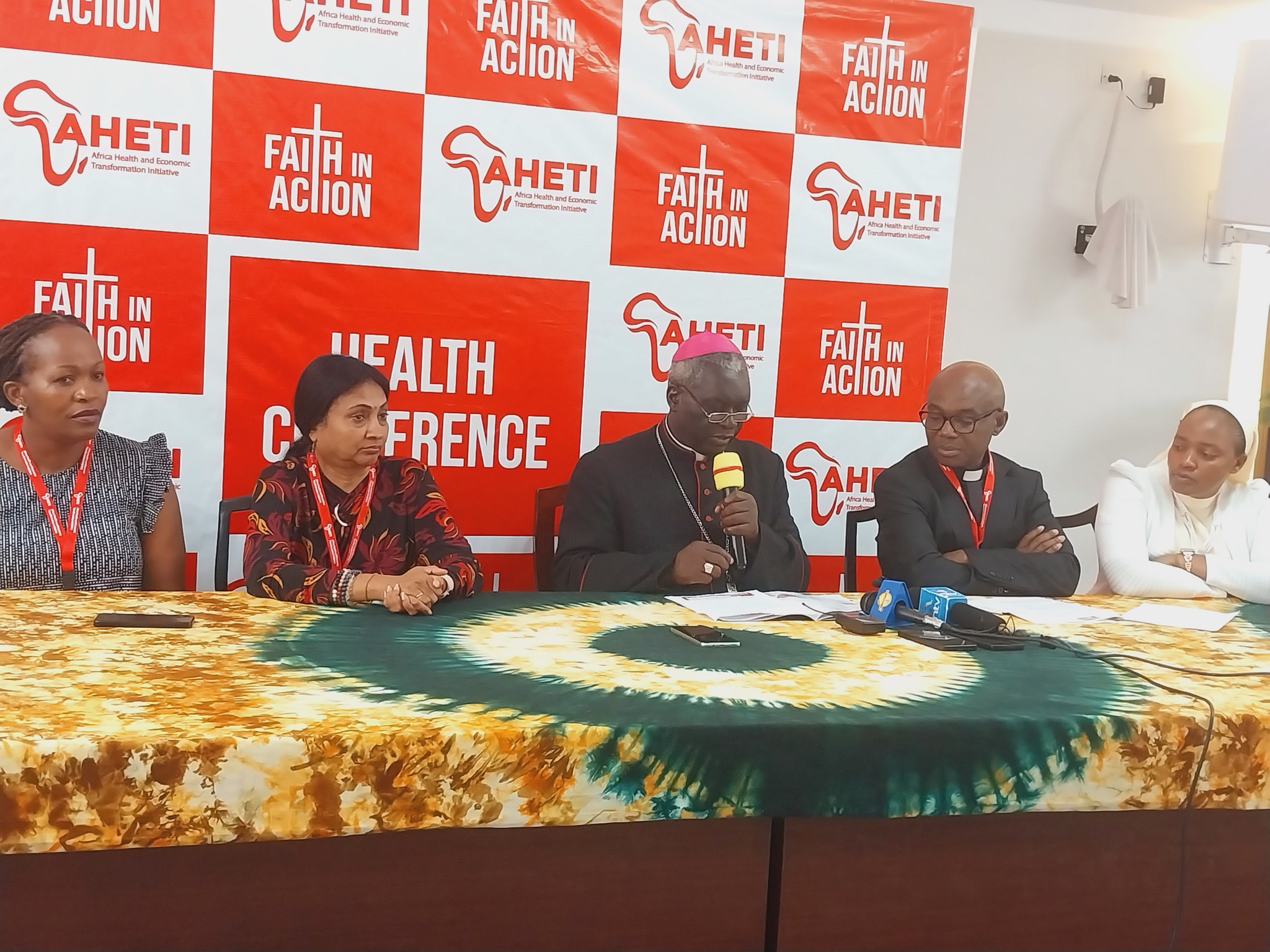

Religious leaders and health experts from across Africa gathered in Nairobi on Thursday for the Faith in Action Health Conference, uniting in an urgent call to tackle two of the continent’s most preventable health challenges—maternal mortality and cervical cancer.
The two-day conference, organized by the Africa Health and Economic Transformation Initiative (AHETI), brought together senior Catholic bishops, Muslim scholars, Protestant and Hindu leaders, Seventh-day Adventist representatives, and global health experts. The aim: to turn faith into a powerful force for public health.
“We must not only preach about the dignity of life—we must protect it,” said Most Rev. Philip Anyolo, Archbishop of Nairobi and the conference’s chief guest. “This moment demands more than prayer; it demands action.”
At the centre of the discussion was the Human Papillomavirus (HPV) vaccine, a proven and effective tool in preventing cervical cancer—a disease that claims more than 3,500 Kenyan women each year, despite being both preventable and treatable if detected early.
According to Ms. Benda Kithaka, Executive Director of KILELE Health Association and lead at the African Cervical Health Alliance (ACHA), the window for protection is narrow.
The vaccine is free for girls aged 10 to 14, but many are missing out due to widespread myths, misinformation, and lack of awareness.
“Our girls are turning 15 without receiving this life-saving vaccine,” Kithaka said. “It’s heartbreaking because this is something that’s free, safe, and globally proven.”
Globally, more than 80 million HPV vaccine doses have been administered in over 100 countries, with strong evidence of safety and effectiveness. Yet in Kenya, uptake remains below 30 percent, largely due to social stigma, myths, and limited access in rural areas.
Kithaka noted that although cervical cancer screening and vaccination services are available at public health facilities, they are severely underutilized. “Women are suffering—not because services don’t exist, but because they lack the knowledge to seek them out.”
She emphasized that the HPV vaccine, coupled with early screening, can prevent most cases of cervical cancer. “We’re not just talking statistics—we’re talking about real lives, mothers and daughters,” she said.
Also speaking at the conference was Fr. Charles Chilufya, S.J., Executive Director of AHETI, who urged faith leaders to go beyond the pulpit and become champions of public health. “More than 90% of Africans identify with a religion. Faith leaders have the trust of millions. That trust must now be used to save lives.”
With Kenya reporting 342 maternal deaths per 100,000 live births, and cervical cancer remaining the leading cause of cancer-related deaths among Kenyan women, Chilufya said bold partnerships between health authorities and religious institutions are more critical than ever.
Dr. Hussein Iman of the Supreme Council of Kenya Muslims (SUPKEM) echoed this message, urging religious leaders to help debunk myths around the HPV vaccine and encourage acceptance in communities. “We have seen the damage that stigma and misinformation can cause. Faith leaders must be part of the solution,” he said.
The conference also gave voice to those directly affected. Judy Wanyoike, a cervical cancer survivor, shared her emotional journey. “I was abandoned by my family when I was diagnosed with Stage 2B cervical cancer,” she said. “I had no money, no knowledge of what to do. It was well-wishers who helped me get screening and treatment.”
She urged parents to vaccinate their daughters and women to get screened, saying early detection could save countless lives.
Kenya has already aligned itself with the World Health Organization’s 90-70-90 strategy, which aims to:
-
Vaccinate 90% of girls against HPV by age 15
-
Screen 70% of women at least once in their lifetime
-
Ensure 90% of women diagnosed with cervical disease receive treatment
“The sad truth is that Kenya is ahead of many African countries in terms of policy and resources, yet so many people remain unaware,” Kithaka said. “We must take this message into every village, every church, every mosque.”
The Faith in Action Conference builds on the 2024 Nairobi Convening on Faith and Science, moving from discussion to action. Its goal: create grassroots change by equipping communities with knowledge and turning trusted faith leaders into health advocates.
The call to action was clear—vaccinate, screen, educate. And above all, work together.













